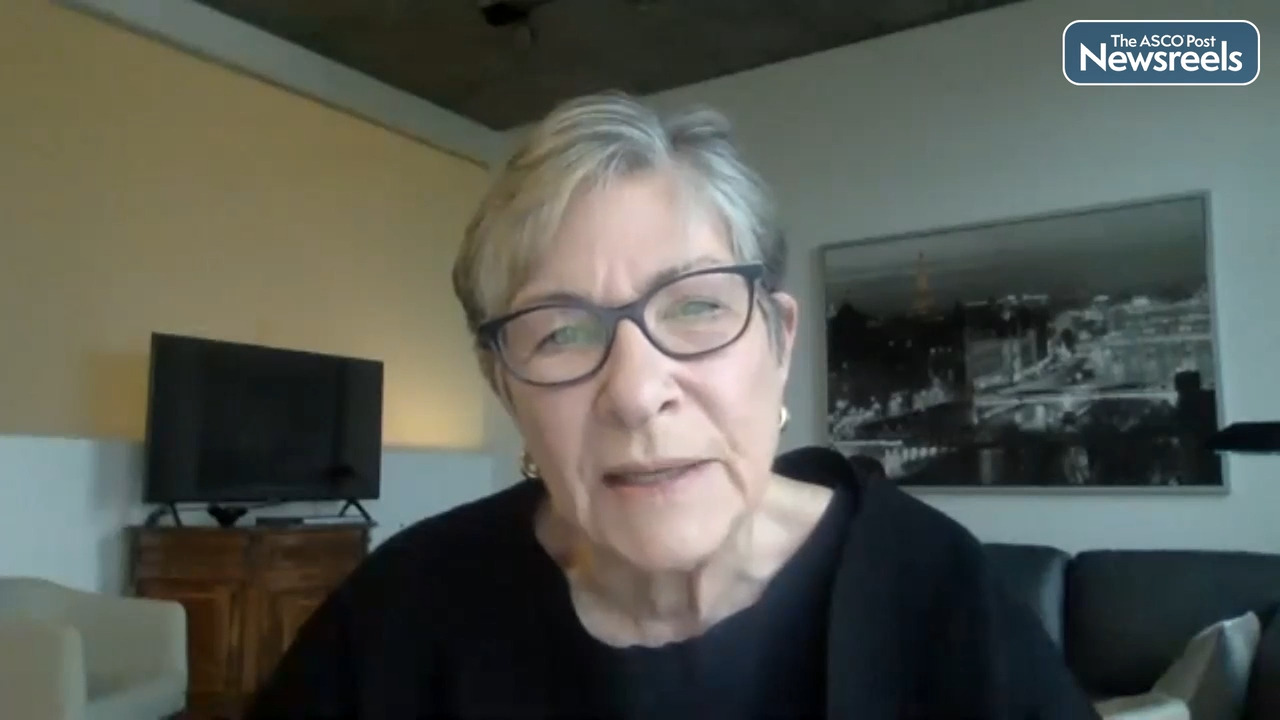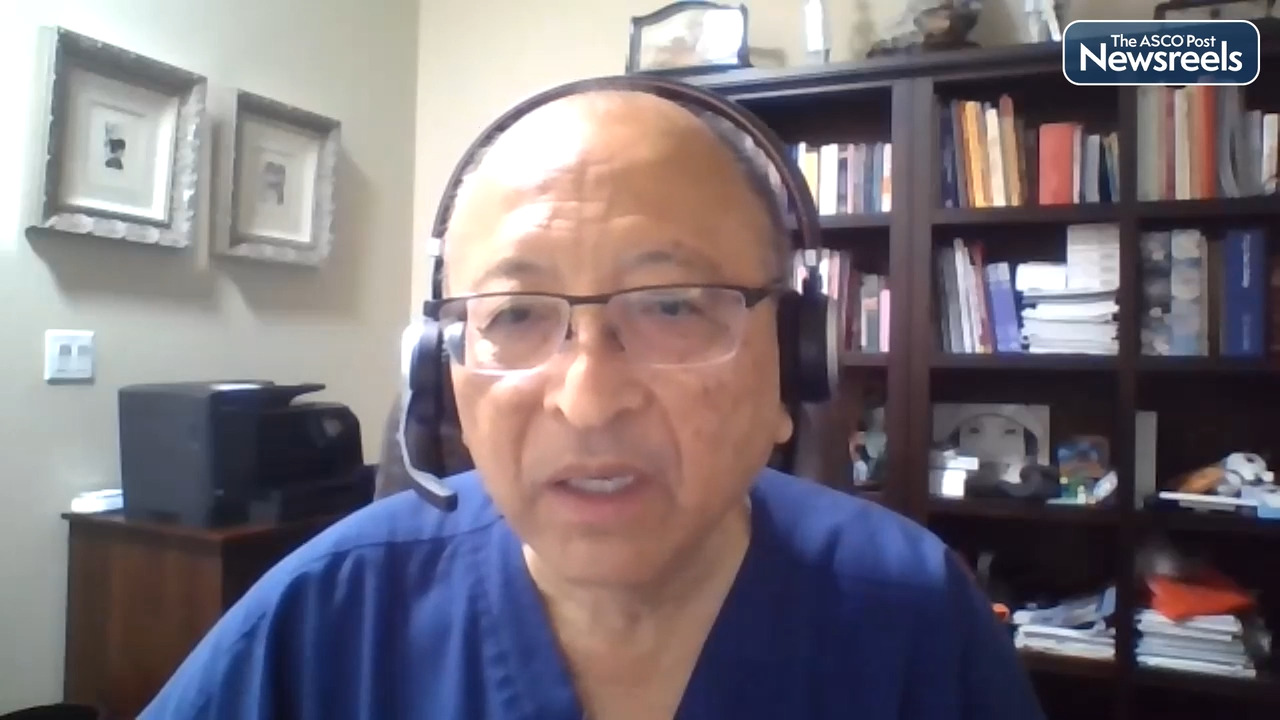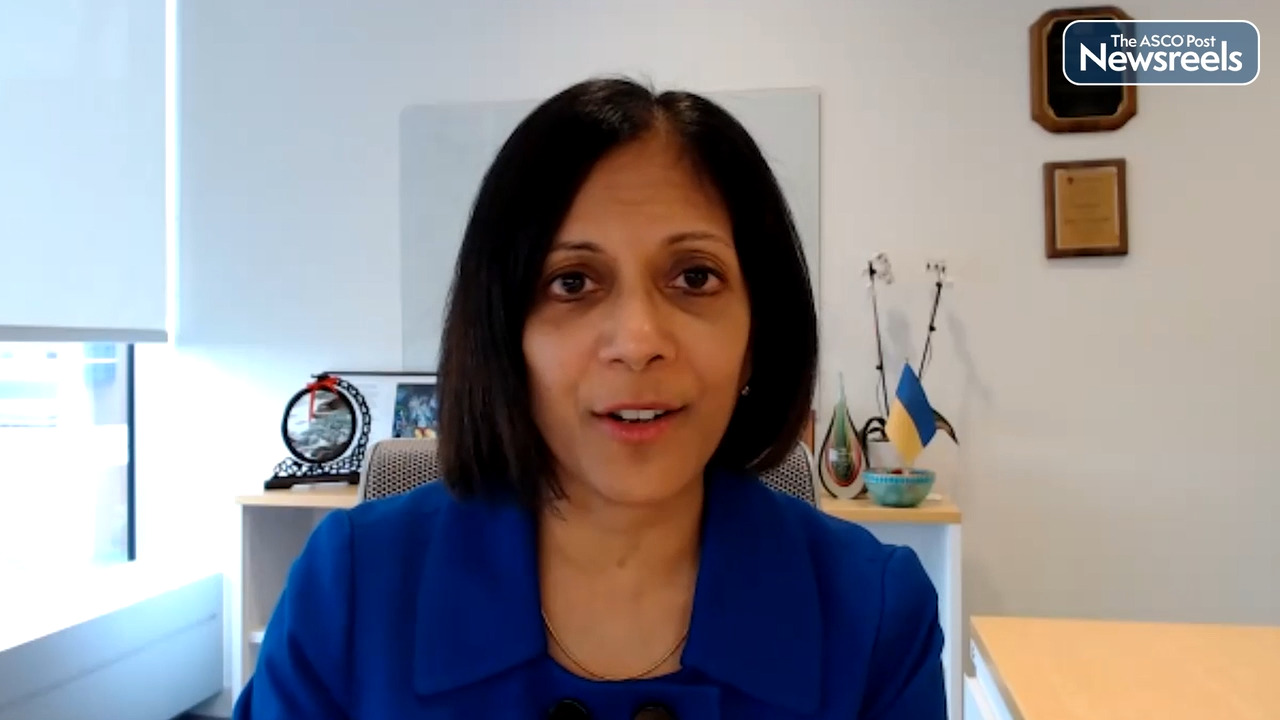Reid M. Ness, MD, MPH, on Colorectal Cancer: Updates in Screening Recommendations
NCCN 2022 Annual Conference
Reid M. Ness, MD, MPH, of Vanderbilt-Ingram Cancer Center, discusses significant updates to the NCCN Clinical Practice Guidelines in Oncology for colorectal cancer screening: lowering the age from 50 to 45 for the initiation of average-risk screening for all combinations of race, ethnicity, and sex; and extending the surveillance interval from 5 to 7–10 years following the identification of one to two low-risk adenomas.
The ASCO Post Staff
Margaret A. Tempero, MD, of the University of California, San Francisco Helen Diller Family Comprehensive Cancer Center, discusses the most effective ways to use the regimens available to treat patients with pancreatic cancer (FOLFIRINOX [fluorouracil, leucovorin, irinotecan, and oxaliplatin] and gemcitabine plus albumin-bound paclitaxel). Dr. Tempero also reviews the upfront use of chemotherapy for resectable disease, and ways to modify these therapies to make them more tolerable for patients. Looking ahead, she expresses hope for the new drugs under development, which may inactivate RAS, a major driver of the disease.
The ASCO Post Staff
Julio M. Pow-Sang, MD, of Moffitt Cancer Center, discusses the treatment landscape for localized prostate cancer and its heterogeneity, the critical importance of stratifying risk to determining treatment options, and the continued improvement of therapy in the field.
The ASCO Post Staff
Thomas W. Flaig, MD, of the University of Colorado Cancer Center, discusses the rapidly changing treatment landscape for patients with bladder cancer, including PD-1 and PD-L1 inhibitors now approved for urothelial carcinoma; a category 1 indication for pembrolizumab in metastatic disease, post-platinum treatment and for non–muscle-invasive bladder cancer; enfortumab vedotin-ejfv for subsequent-line use; and erdafitinib for those with select FGFR mutations.
The ASCO Post Staff
Smitha S. Krishnamurthi, MD, of the Cleveland Clinic Taussig Cancer Institute, discusses prognostic assays for localized colon cancer, the potential clinical uses and current limitations of prognostic assays for stage II to III disease, and checkpoint inhibitor therapy for metastatic colorectal cancer.
The ASCO Post Staff
Maria Alma Rodriguez, MD, of The University of Texas MD Anderson Cancer Center, discusses the need for various types of vaccinations in patients with cancer, who are vulnerable to infection while under active treatment and whose immune deficits may persist long after treatment is finished. Dr. Rodriguez reviews new treatment guidelines and the steps oncology clinicians should take to ensure their patients are protected against infections.





